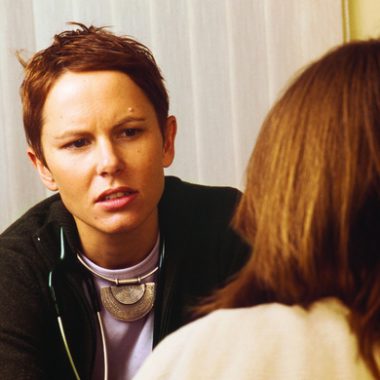How can I protect these girls from FGM?

Dr Wendy Kuriyan: Examine to check FGM hasn’t already taken place
Ask to examine the girls so that you can record that they have not, so far, been subject to FGM. If they are over 18 or deemed Gillick competent, this means asking the girls themselves. If they are younger you need their mother’s permission. If you believe FGM has already taken place, then, under the Serious Crime Act 2015, passed in March this year, you must report it to the police.
Try to understand the mother’s motivation for giving you this information. Does she appear to be in favour of what is happening or is she asking for help to stop it? If the latter, then bear in mind that she could be at risk herself if she prevents FGM being carried out on her daughters. Make sure she is aware FGM is illegal in the UK and that it is also illegal to take a British national or permanent resident abroad for FGM.
FGM is abuse and a criminal offence, and if a child is at immediate risk you must report it to social services and the police. The police are likely to respond by taking out a protective order preventing the girls from travelling abroad.
Consider the other support the mother and daughters might need. If this is available, refer them to local counselling services. You could also direct them to the NSPCC’s FGM resources and helpline.
From October it will be mandatory for GPs to record in a patient’s notes if FGM has taken place and inform the Department of Health. It’s a good idea to start keeping your own logs of these patients now to cut back on double-counting and to prepare for the legal change.
Dr Wendy Kuriyan is a GP and NHS Bedfordshire CCG’s designated doctor for safeguarding children
Comfort Momoh: Set up a meeting between the family and social services
Encourage the woman to tell you more, such as who she lives with and who the pressure is coming from. It would also be useful to find out if FGM has been done to her, but just ask about this, rather than examining her.
You need to give the mother advice and information that is sensitive to her culture and beliefs, but also to make it clear that FGM is illegal. You must record and report FGM cases to the DH.
Be sensitive to the intimate nature of the subject, make no assumptions, ask straightforward questions about her background and try to understand her feelings in terms of language barriers and the clash between cultures.
Explain clearly that FGM is illegal and that the law can be used to help her protect her daughters from FGM.
Inform social services and set up a meeting between the GP, the family and social services. Involve the woman in planning this. This should first ensure that parents and daughters have access to information about the harmful aspects of FGM and the law in the UK.
An interpreter and, if possible, a community advocate trained in all aspects of FGM, should be present in all interviews with the family; use a female interpreter who is not a relative.
Make every attempt to work with parents on a voluntary basis. It is the duty of the investigating team to look at how parental co-operation can be achieved, including the use of community organisations/ leaders to facilitate the work.
The aim should be to prevent the child from undergoing FGM rather than to remove her from her family.
Comfort Momoh is a member of the FGM national clinical group and a midwife at Guys and St Thomas’ NHS Foundation Trust, London
Dr Rachel Birch: Inform the police and social services
FGM is regarded as a serious form of child abuse with significant mental and physical consequences. As a GP you have both legal and professional obligations to protect these children, and further mandatory reporting requirements were added to the Serious Crime Act.
Preparations for a prolonged holiday abroad is a key indicator that a child may be at risk of FGM. Inform social services and, if you feel there is an immediate risk 0f a child being taken abroad, the police. This obligation overrides any duty of confidentiality.
Explain this to the mother and advise her of the steps you are required to take and the potential consequences. These include contacting social services, which may apply for one of the following orders: a prohibitive steps order; a wardship order (which prevents one parent taking a child abroad without express consent from the other); or an emergency protection order (providing the power to remove the child or keep her in a safe place for a specified duration).
Where possible, seek the mother’s consent for the disclosure, unless you believe alerting her may put the children at further risk. If you are unsure, contact the local child safeguarding lead and your defence organisation.
Dr Rachel Birch is a GP and medicolegal adviser at the Medical Protection Society
Pulse October survey
Take our July 2025 survey to potentially win £1.000 worth of tokens

Visit Pulse Reference for details on 140 symptoms, including easily searchable symptoms and categories, offering you a free platform to check symptoms and receive potential diagnoses during consultations.










